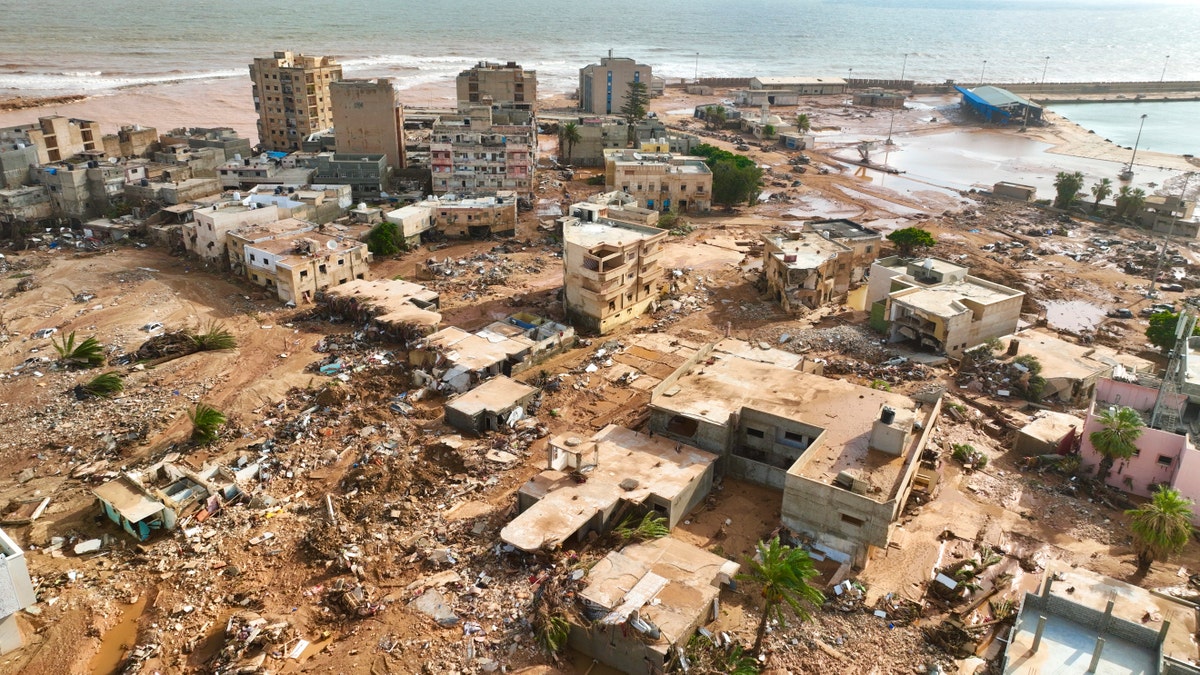Fox News Flash top headlines for October 5
Fox News Flash top headlines are here. Check out what's clicking on Foxnews.com.
- Ambassador to Libya Richard Norland said Thursday that flooding that left thousands dead around Derna may renew pushes to unify the fractured nation.
- "I believe the stage is actually set for development of an agreed, credible roadmap to elections," Norland said.
- Libya's government has been divided between rival administrations since 2014, and has experienced significant political turmoil since the 2011 removal of dictator Muammar Gaddafi.
The U.S. Ambassador to Libya said Thursday that the deadly floods that devastated a Libyan coastal city last month have spurred new efforts to unify the oil rich country.
During an online news conference, Richard Norland insisted that the tragedy, which killed thousands of people in the eastern city of Derna, has added urgency to "unify the country’s institutions" following a decade of conflict and division.
"I believe the stage is actually set for development of an agreed, credible roadmap to elections," he said.
EAST LIBYA FEARS 2,000 DEAD FOLLOWING SEVERE FLOODING
Devastating rainfall and floods, triggered by Mediterranean Storm Daniel, hit parts of eastern Libya in September. The water overwhelmed two aging dams outside Derna on Sep. 11, causing massive flooding that washed away residential buildings to the sea and left as much as one-third of Derna’s housing and infrastructure damaged, according to the U.N.’s Office for Coordination of Humanitarian Affairs.
Government officials and aid agencies have given estimated death tolls ranging from more than 4,000 to over 11,000.
The disaster has brought some rare unity to oil-rich Libya, which has been divided between rival administrations since 2014. Both are backed by international patrons and armed militias whose influence in the country has ballooned since a NATO-backed Arab Spring uprising toppled autocratic ruler Muammar Gaddafi in 2011.

A general view of the city of Derna is seen on Sept. 12, 2023, after Mediterranean Storm Daniel caused devastating floods in Libya that broke dams and swept away entire neighborhoods. (AP Photo/Jamal Alkomaty)
To make elections possible, Norland said both governments must agree on a series of electoral laws and the formation of caretaker government that would oversee the vote.
The ambassador said he and Gen. Michael E. Langley, the top U.S. commander for Africa, held several meetings with Libya's leading political figures in the wake of September's floods, including with Gen. Khalifa Hiftar, head of the self-styled Libyan National Army. Hiftar and his powerful force is allied with the eastern administration, under which Derna falls.
LIBYA DIVIDES FLOOD-STRICKEN CITY INTO SECTIONS TO PREVENT POTENTIAL SPREAD OF DISEASE
Following the disaster, many in and outside Libya called for an international investigation into possible government neglect, reflecting the deep public mistrust in state institutions. The two dams had not been maintained for decades despite repeated warnings that they were faulty.
During the news conference, the ambassador also called for the formation of a unified mechanism of the two governments to lead the reconstruction of the city. A joint mechanism was first proposed by U.N. Special Envoy for Libya Abdoulaye Bathily on Monday.
Numerous initiatives to unite Libya's rival governments have failed.
CLICK HERE TO GET THE FOX NEWS APP
A previous U.N.-brokered process installed an interim government — with Dbeibah at its head — in early 2021 with the aim of guiding the country to elections later that year. The elections were never held following disagreements over several key issues, including the eligibility for presidential candidacy.








































